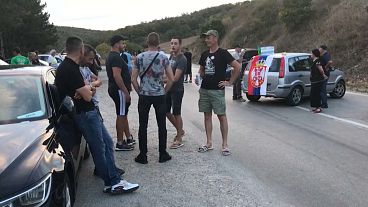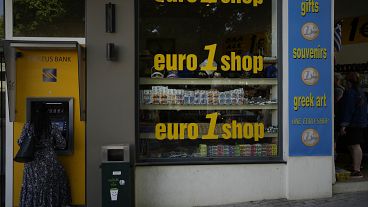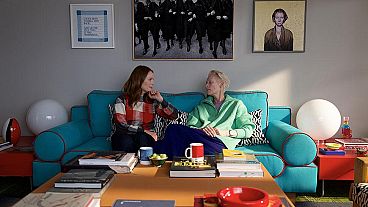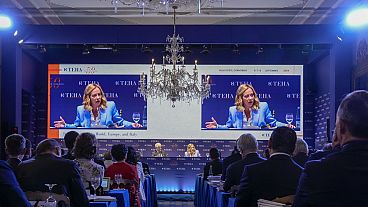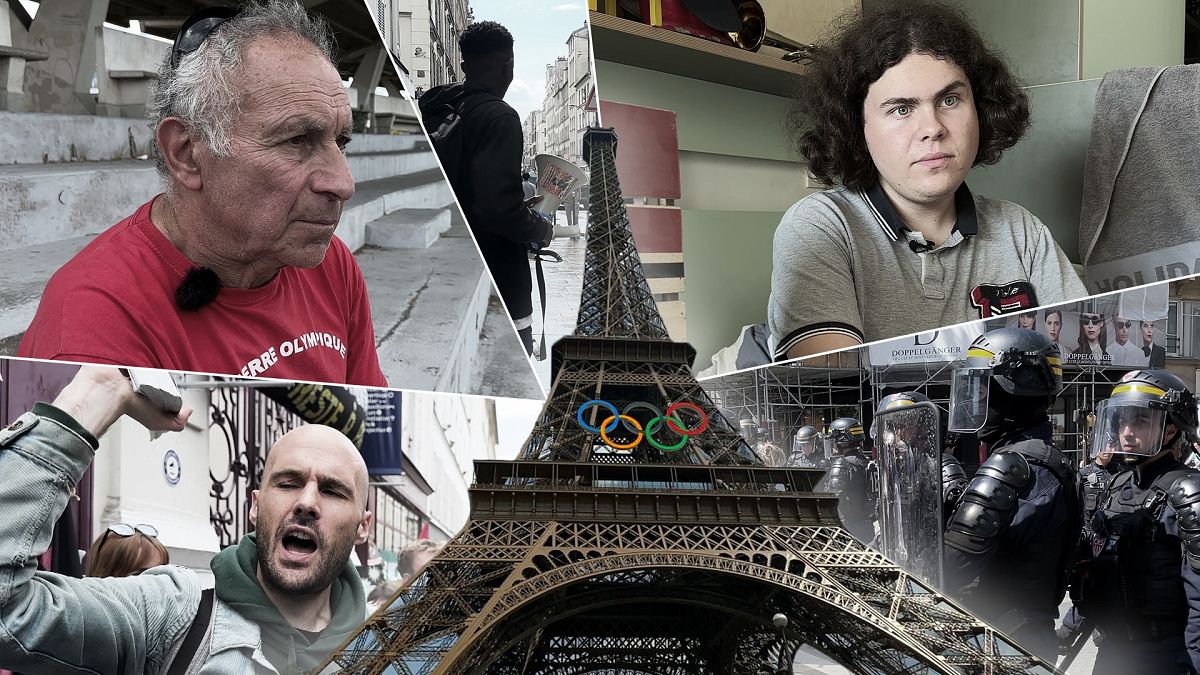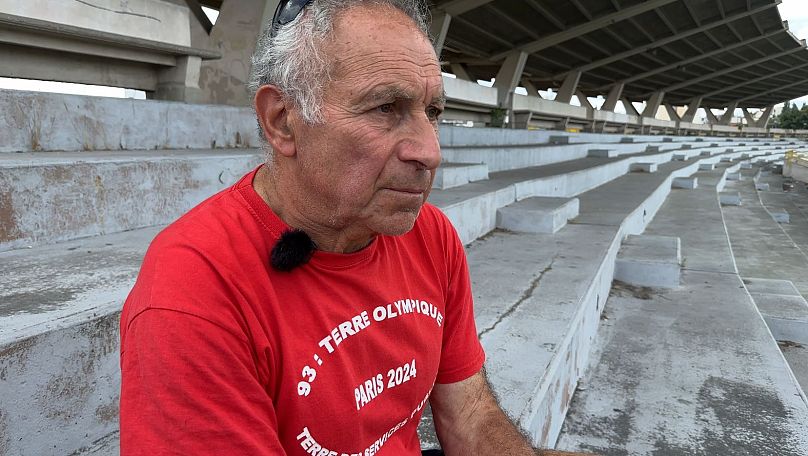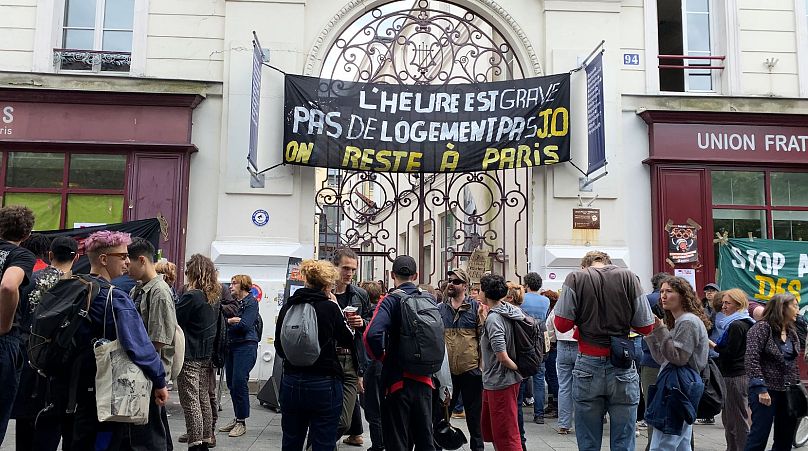Paris is the undisputed star of the Olympics 2024. France aims to stage the most sustainable Games in history, while setting a new model for future editions. Can these ambitions be realised and at what cost? Monica Pinna went to Paris to shed light on the grey areas of this global sporting event.
This edition of the Olympics has a special feature: many of the competitions take place in the city centre, close to Paris’ most iconic monuments. 95% of the infrastructure is either existing or temporary, which has kept costs down to around nine billion euros. Paris 2024 is the cheapest Games in decades. The Municipality of Paris is convinced the event will still leave a huge legacy.
"The Games were a great accelerator for the city", explains Pierre Rabadan, deputy mayor in charge of sports for the Municipality of Paris. “We have managed to finalise works that might have taken 10 or 15 years to achieve, in four or five years. It enabled us to transform entire neighbourhoods.”
Huge investment has gone into Northern Paris. The Olympic village is the biggest permanent infrastructure built in Seine Saint Denis, the poorest district in mainland France. It is presented as a cutting-edge eco-district with a future. It will be transformed into a new neighborhood for 6,000 residents after the Games, but apartments are struggling to be sold. The average price of 7,000 euros per square meter is just too high for Seine Saint Denis.
New infrastructure, old problems
The area is home to key venues of the Games, including a renovated Stade de France and a brand new 175-million-euro Aquatics centre. Nevertheless, sport in this district remains a luxury for its inhabitants.
“Most sport facilities in Seine-Saint-Denis are between 40 and 50 years old", explains Serge Reitchess, a former sports teacher and the heart and soul of CoPer 93, a local movement for the promotion of sport at school and of equality in sport.
“We have sixteen facilities for every 10,000 inhabitants, whereas the average for the Greater Paris region is 25 and the national average is 50,” he says.
The Olympics have unblocked over one billion euros for this district, but residents say very little has gone into local sport facilities. Renovations and new sport facilities here are still too scarce and not equally distributed, local administrators say. They have been asking for a public investment plan for years.
They add that renovations do not always take locals’ real needs into account. Alix Rivière, spokesperson for the FCP 93 Parents Federation, explains that, on averge, school children lose an hour going back and forth their to the gym where their sports class is held.
‘It's as if they were explaining to us that, for example, the English or French room is 20 minutes away from the school. A gym is like a classroom in reality’.
Her views are reflective of those who say they have been forgotten by the Games or sidelined by them.
Out of sight, out of mind
The Olympics market themselves as “wide open” and “inclusive”. But the collective "The Other Side of the Medal" accuses organisers of carrying out a "year of social cleansing" ahead of the Olympics and Paralympics.
The group includes almost 100 associations and NGOs. They say over 12,500 people have been evicted in the past year, almost 40% more than in 2021-2022. Charities say they are taken out of sight without being offered a permanent accommodation solution.
“For months now, the only thing the Prefecture has wanted to do, with the complicity of the City Hall, is to evict everyone they don't want to see during the Olympics," says Mathieu Pastor, from the residents’ collective 20ème Solidaire. “Unaccompanied minors and all the people on the streets are evicted with only the offer to get on buses to go to Orléans, Angers or Marseille," he adds.
Around the beginning of June around 200 migrant unaccompanied minors were expelled from the cultural centre “Maison des Métallos”. They were taken to a municipal gym in Paris. It was the end of three months of occupation and another case of social cleansing caused by the Olympic Games, charities say.
“Every day in Paris, dozens of young people are denied minority status, because then nobody needs to look after them. The City Council refuses to deal with this situation, even though it is a left-wing city council with huge resources, which has access to hundreds of thousands of empty homes, which could launch requisitions, but does nothing’.
Elusive long term solutions
The Municipality of Paris replies they want to find long term solutions for those sleeping in the streets, independently from the Olympic Games:
“The City participates by making a certain number of venues available. But once you have the premises, you have to make them available, you have to pay the associations to welcome the people who are there... it's an investment.”
Asked why the Municipality hadn’t thought of this in advance, Rabadan replied: “It's not our responsibility. The state has to provide the resources to be able to use these places and put people in there.”
Will France manage to set a precedent for the next Games? All the medals will be won before that question is answered. The time is over for controversy. The torch has passed to athletes, while the Olympic machine is already rolling towards Los Angeles 2028.

